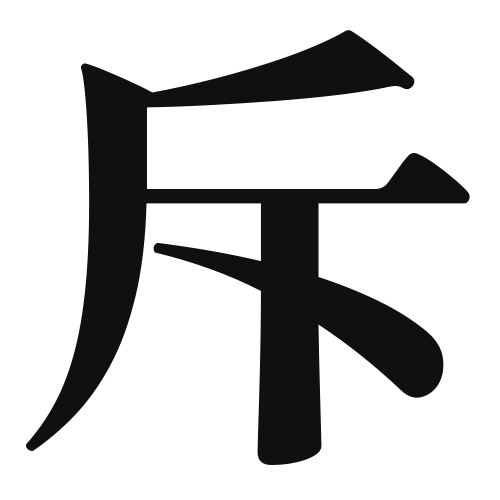1. Overview of Meaning
The kanji “斥” (shaku) generally means “to reject” or “to repel.” It conveys the idea of pushing something away or dismissing it, often in a context of disagreement or refusal.
2. Formation and Radical
Formation of the Kanji: The kanji “斥” is a phonetic-ideographic character (形声文字). It combines the meaning of the radical and the phonetic component to convey its meaning. The left part, “斥,” suggests the action of rejecting, while the right part provides the phonetic sound.
Radical: The radical for “斥” is “斥” itself, which relates to actions involving rejection or repulsion.
3. Examples of Usage
Common Words and Phrases: Some common words that include “斥” are “斥候” (shikou – scout) and “斥責” (shisekki – reprimand).
Example Sentences in Daily Conversation:
- 彼はその提案を斥けた。 (Kare wa sono teian o shikaketa.) – He rejected the proposal.
- その意見は斥けられた。 (Sono iken wa shikakerareta.) – That opinion was dismissed.
4. Synonyms and Antonyms
Similar Kanji: A similar kanji is “拒” (kyo), which also means “to refuse” but often implies a stronger sense of denial or opposition.
Antonyms: An antonym is “受” (ju), which means “to receive” or “to accept,” indicating the opposite action of welcoming or agreeing.
5. Cultural and Historical Background
Relation to Japanese Culture: The concept of rejection or repulsion is significant in various aspects of Japanese culture, including social interactions and decision-making processes.
Proverbs and Idioms: One relevant proverb is “断固拒否” (danko kyohi), which means “to firmly reject,” emphasizing a strong stance against something.
